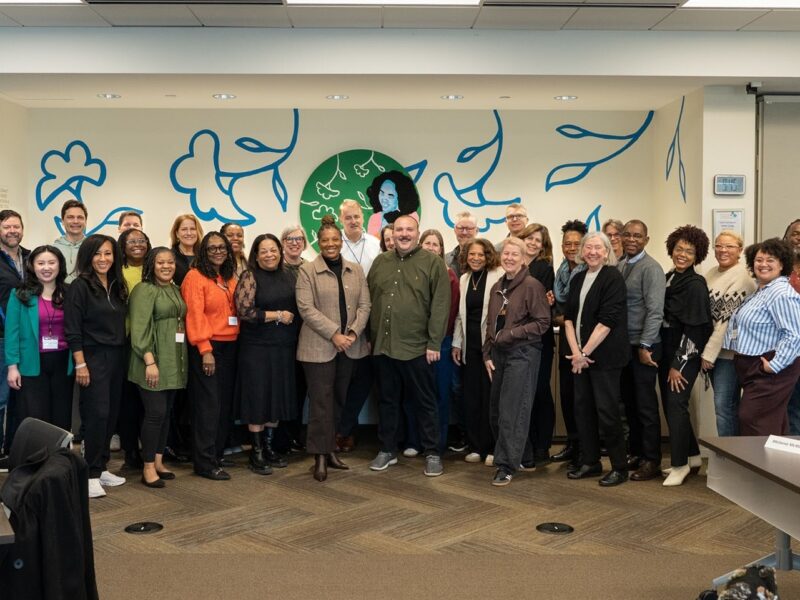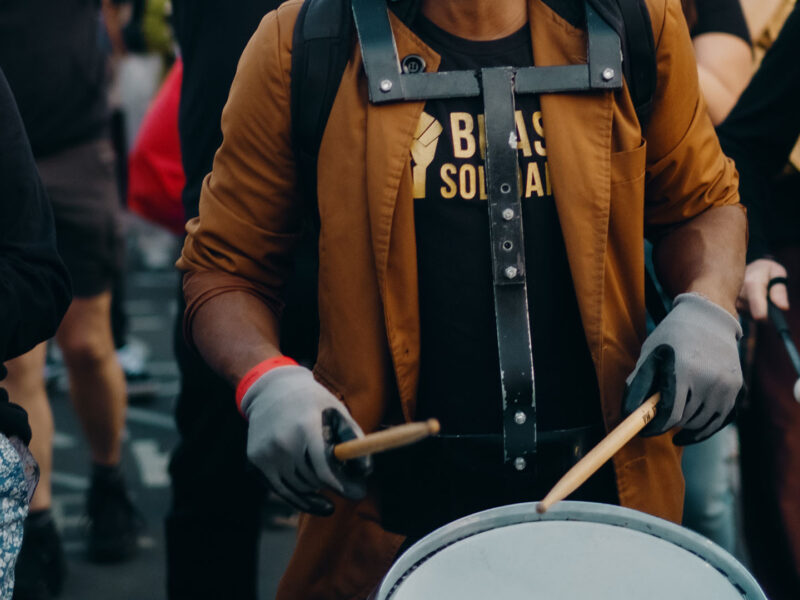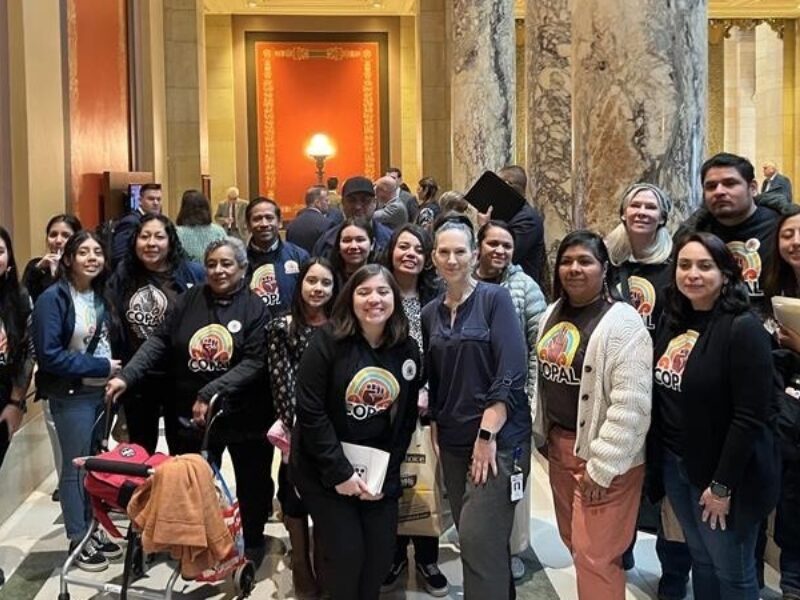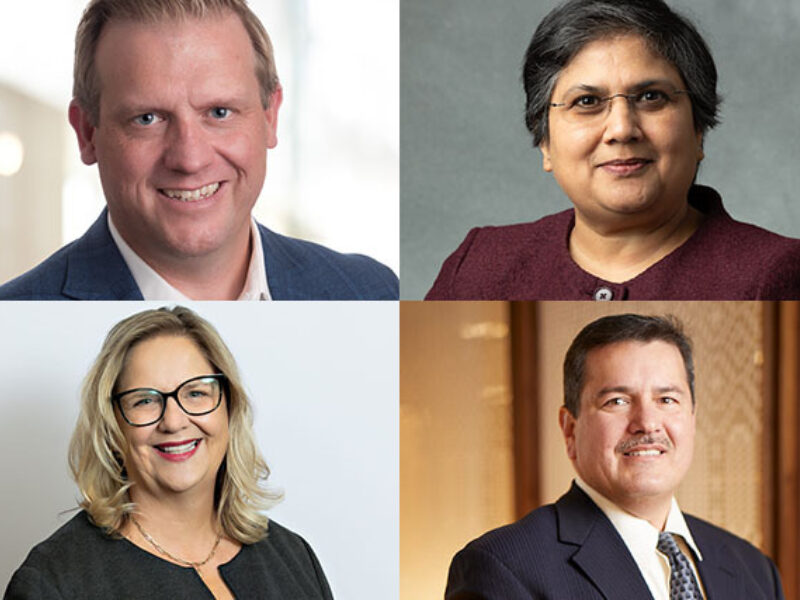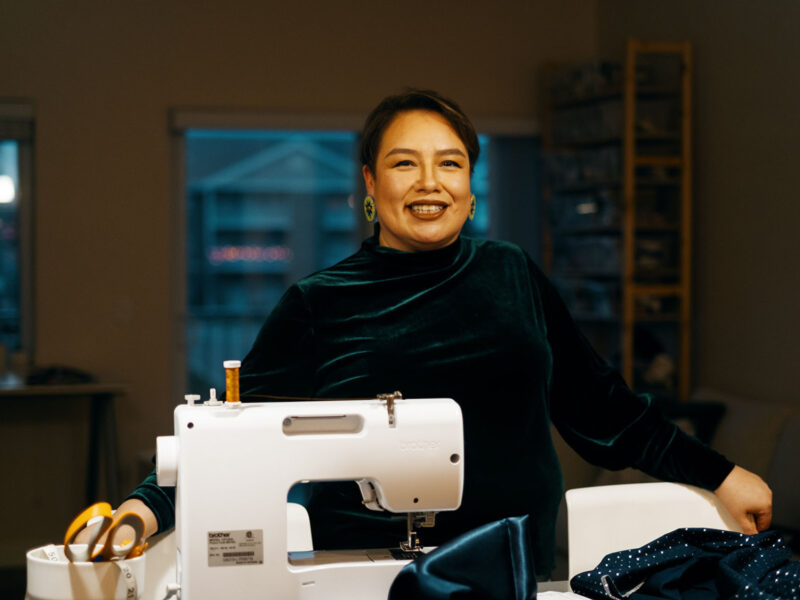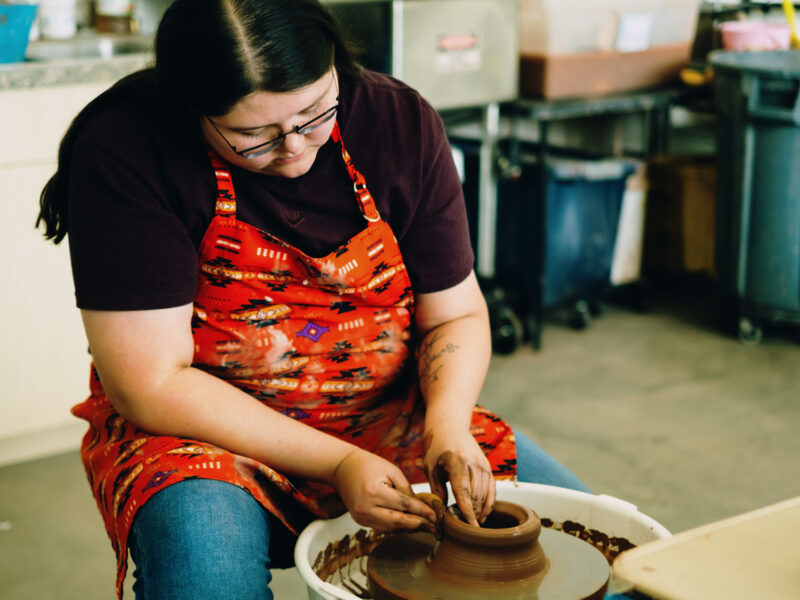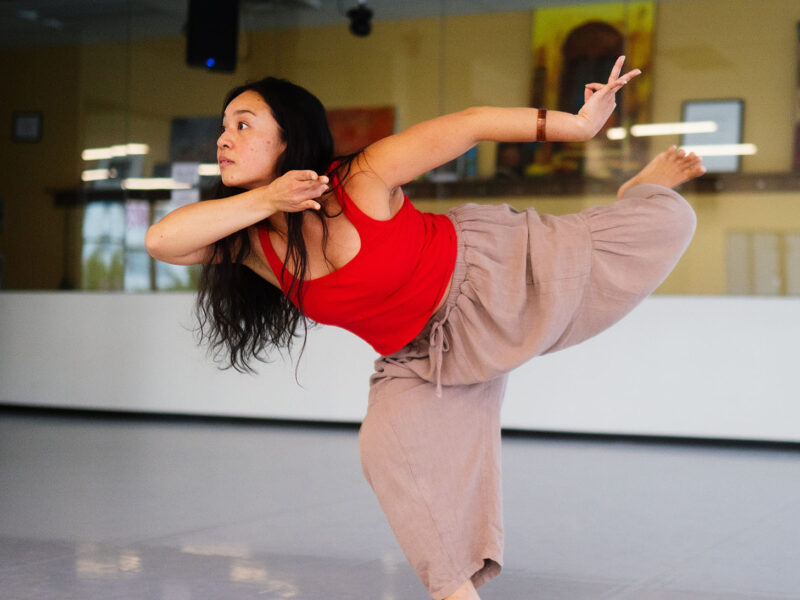Learn what OutFront Minnesota is doing to improve the lives of LGBTQIA+ individuals in the state.
The Saint Paul & Minnesota Foundation’s March Giving+Together event provided an opportunity for fundholders to learn about several civil rights and social justice topics that are impacting our communities.
At this event, we were joined by three nonprofit and community leaders, including Kat Rohn, executive director of OutFront Minnesota. We recently had the opportunity to talk to Kat about their organization and what it is doing to improve the lives of individuals in the Lesbian, Gay, Bisexual, Transgender, Queer, Intersex and Asexual (LGBTQIA+) community.
What is OutFront Minnesota?
OutFront Minnesota is our state’s largest LGBTQIA+ advocacy organization. Just last year we celebrated 35 years of working to advance equity here in the state of Minnesota! OutFront Minnesota works in policy, education, direct community support and engagement to help build a more equitable state for LGBTQIA+ Minnesotans.
I joined as executive director in 2022, and I could not be more proud to be leading this organization at a time when this work feels so urgent.
You were a panelist at our Giving + Together on civil rights and social justice. Why do you think these topics are important in today’s world?
There’s that classic Senator Paul Wellstone phrase, “we all do better when we all do better,” and I really believe that.
Embracing the wholeness of our experiences and ensuring that everyone can bring their full selves and full potential to all they do makes for stronger communities and healthier people. Civil rights and social justice work are about building that better world. Working to both better the systems we have and build those that we need to create communities in which we can all thrive.
What are some of the issues you’ve come across in Minnesota as an organization that focuses its work on equity, anti-violence and policy change?
LGBTQIA+ Minnesotans have made important gains; but we know that the experiences of our community vary greatly. We are reminded daily of the disparities that remain, particularly for queer and trans people of color and members of our community in Greater Minnesota.
There is beautiful and important organizing work being done across the state to improve that, but we still have work to do both within and outside of our communities to close those gaps.
What do you believe are some of the primary issues the LGBTQIA+ community is currently facing?
There is a coordinated, nationwide effort to push LGBTQIA+ people out of public life. Period.
Much of it specifically focused on members of our transgender community. That’s a really scary reality. And it’s a reaction to many of the gains our community has made in both policy and in visibility over the past decade. But I believe we have the ability to reshape that narrative and to tell our stories and build movements that will help carry us through this particularly fraught moment.
“Embracing the wholeness of our experiences and ensuring that everyone can bring their full selves and full potential to all they do makes for stronger communities and healthier people.”
Executive Director Kat Rohn

What are some of the things OutFront Minnesota has done to help create progress and change in the state for the LGBTQIA+ community?
OutFront Minnesota has been instrumental in a number of significant policy changes here in the state, including LGBTQ+ non-discrimination protections in the Minnesota Human Rights Act in 1993, and marriage equality in 2012-2013.
This year we helped to secure the executive order providing refuge for those seeking gender-affirming care in the state, and we have more that we continue to work on. But policy is only one part of this work — and in many ways, it’s really only the result of the good and important community-building work that we do.
Building organizing energy and focus within the LGBTQIA+ community and building up that framework for changing our cultural landscape is how we’ve built some of our most enduring and important victories as a community.
What are some of the events and projects you are currently organizing or working on?
Like many organizations, we are spending a lot of time at the state capitol this spring because there is an opportunity to move policy that’s been worked on and that we have been waiting for for many years. But that’s only a fraction of what we do.
We also respond to community needs by supporting folks who are experiencing violence and discrimination, as well as youth and schools. We are showing up to partner with organizations across the state that share our vision of a more welcoming and inclusive state.
Right now we are in the midst of getting our plan together for the Pride season, and I am so excited to have our team heading out to more than 20 Pride events across the state, from Hastings to Duluth to Moorhead and St. Cloud, as well as here in the Twin Cities.
Can you share a little about the importance and value of stories for change and action?
There’s no question when I look back, particularly at the marriage campaign here in Minnesota, that storytelling was fundamental to the success of that effort. Being able to humanize our relationships and experiences, and being able to tell a story that aligned with our state’s values changed hearts and minds and shifted the whole arc of that campaign work.
Today that storytelling is just as critical; particularly as we face such a fraught public discourse around LGBTQIA+ and specifically trans lives at a national level. Ultimately if we tell our stories well and build those points of connection and understanding, we can help create safer and more welcoming communities across the state.
What are some of the things OutFront Minnesota is doing to support LGBTQIA+ youth?
OutFront Minnesota works with LGBTQIA+ youth throughout the state. Just a few weeks ago we had hundreds of students gathered in Saint Paul for our annual Youth Summit event. It was beautiful hearing from them how meaningful that space was, how important those connections with other LGBTQIA+ youth can be to creating a sense of belonging.
The research is clear that safe and supportive school environments can be an important protective factor for the health of LGBTQIA+ youth; so working with schools to develop and implement inclusive policies, train teachers and administrators, and support our queer and trans youth is something that we see as important work for us here in the state.
Is there anything else about your work that you would like to share that wasn’t asked?
All too often LGBTQIA+ communities are reduced to a lens of legislation or to stories about our victimization. While there are important things to talk about around all of those areas, I think it’s really important that we don’t lose sight of the beauty in our community.
LGBTQIA+ folks have a rich history of celebratory art and expression and a commitment to community care that has carried us through all of our most important moments. There’s plenty of work to be done, but there is so much joy to be found in all of it! It’s part of why I feel so privileged to be stepping into this work every day.
To learn about other Giving + Together panelists, take a look at our recent article with TakeAction Minnesota.






